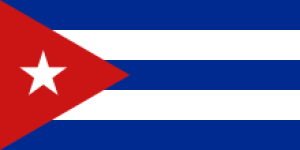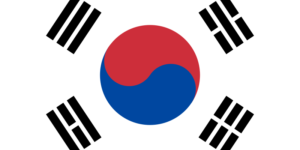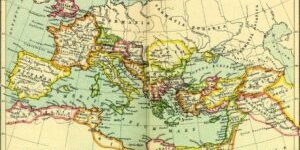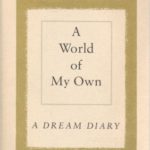The Vrije Universiteit And South Africa ~ 125 Years Of Sentiments And Good Faith
No Comments yet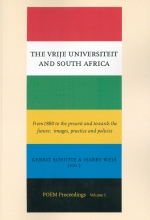 This academic year (2005), the Vrije Universiteit enjoys its 125th anniversary.[i] In 1879, a handful of orthodox reformed Dutch gentlemen founded an Association for the advancement of Christian Higher Education, and on 20 October 1880, Abraham Kuyper inaugurated the Vrije Universiteit, Academia libera reformata, by delivering his famous lecture on Sphere Sovereignty, Soevereiniteit in eigen kring.
This academic year (2005), the Vrije Universiteit enjoys its 125th anniversary.[i] In 1879, a handful of orthodox reformed Dutch gentlemen founded an Association for the advancement of Christian Higher Education, and on 20 October 1880, Abraham Kuyper inaugurated the Vrije Universiteit, Academia libera reformata, by delivering his famous lecture on Sphere Sovereignty, Soevereiniteit in eigen kring.
Kuyper was never a very modest man, and he certainly was not inclined to be modest at that moment. The credits of the university he opened, were three faculties, five professors and five students. As an accomplished rhetorician he described it as onze kleine School, met den Universiteitsnaam zelve tot blozens toe verlegen (our small school, blushing to be called a university). This was not meant as an apology, but rather to make a Hegelian turn: the real credits of the VU were written in the Synod of Dordt, its claim to nobility was the courage and moral dedication of its supporters, and its worldwide value and importance (Kuyper 1880). In the Kuyperian world panorama, his University would become the intellectual centre of the international Calvinist world – the academic power-house for all the reformed churches, nations and societies in Europe, America, and the Dutch colonies in the East. And for South Africa, of course.
October 1880: this is also the month in which Piet Cronjé, on behalf of 127 Transvaler burghers, declared to the Landdrost of Potchefstroom that they would no longer pay any taxes to the British government, as that government had illegally annexed and stolen their country (Van Oordt 1898). His language was quite akin to what Abraham Kuyper had written as a commentary on Shepstone’s annexation of the Transvaal in 1877, when he stated in his daily De Standaard: robbery is a sin to the eyes of the Lord, even by a crowned robber.
As a journalist and politician, Kuyper followed the South African developments on a daily basis. He was well-informed about the South African situation. He had met personally with the rising star of the Afrikaner Movement, editor of Die Patriot, chairman of the Genootskap van Regte Afrikaners and founder of the Afrikaner Bond, the Revd. S.J. du Toit. And he was regularly informed by the Revd. Frans Lion Cachet, back in the Netherlands after a stay in South Africa for more than thirty years. Kuyper welcomed Paardekraal and the declaration of independence of the Transvaal Volk. He was very active in the Amsterdam Transvaal Committee and, in May 1881, became one of the founders of a countrywide, lasting pro-Boer organisation, the Nederlands-Zuid-Afrikaanse Vereniging (NZAV). The members of the NZAV consisted mainly of liberals and conservatives and some radicals, such as social-democrats and antirevolutionaries. In close cooperation with S.J. du Toit, now Superintendent of Education in the Transvaal, Kuyper tried to dominate the cooperation with the Transvaal (material aid, advice on the development of the new Afrikaner Republic, emigration), to protect the good orthodoxy of the Transvaalers against the ungodly Dutch liberals – as had happened in the 1870s, when President Burgers – a defrocked liberal DRC (NGK) dominee! – with the help of his liberal Dutch friends had tried to modernise the education and had made a mess of the Transvaal, only to prepare it for annexation by Shepstone!
Kuyper had a real interest in South Africa, both as a Dutch nationalist and as a Calvinist. According to him – and to every Dutchman at that time! – the Afrikaners were fellow descendants of the Geuzen, stock of the pious heroes from the Golden Age of the Netherlands, kinsmen (stamverwanten) and co-believers; brethren (geestverwanten). In early 1882 Kuyper seriously planned a trip to the Transvaal. Formally as a tourist and journalist, a member of the Board of the NZAV, a friend and admirer – but of course also as a consultant, giving advice on how to organise a Christian-national, antirevolutionary, reformed South African Republic. The Board of the VU would not permit its Rector Magnificus a leave for half a year – and thereby decidedly denied South Africa a chance to turn its history!
In 1883-84 Kuyper was active as an advisor and PR-man to the Deputation of S.J.P. Kruger, Genl. N.J. Smit and S.J. du Toit, negotiating the Convention of London. Kuyper also organised the welcome reception of the Deputation in the Netherlands afterwards, in 1884. And in 1900 he wrote La crise sud-africaine, the most influential pro-Boer pamphlet of the Anglo-Boer War next to Smuts’ A Century of Wrong. The role of Kuyper, by then Prime Minister of the Netherlands (1901-1905), in ending the Anglo-Boer War is well-known, as well as his fine 1904 farewell tribute to the deceased President Kruger: ‘This Moyse … that fighter for his nation, united, in its language and its free fatherland … in God’s time to be we will see him succeeded by a Joshua’.
The Dutch view of South Africa was dominated for much more than half a century by these pro-Boer sympathies, the feelings of kinship and national pride, fostered by the British atrocities during the Anglo-Boer War. South African history and Afrikaans literature were part of the curriculum of the Dutch High Schools and the Government stimulated public attention for Afrikaner events, for example in 1925 (100th anniversary of Paul Kruger), 1938 and 1949 (Great Trek, Voortrekker monument), and 1952 (Van Riebeeck Festival).
At the Vrije Universiteit, the general Dutch pro-Boer sympathies were enlarged by a strong consciousness of the common religion between Afrikaner and Protestant Dutchmen. They shared the same religious and ecclesiastical tradition, read the same Statenbijbel and sang the same 18th century Dutch edition of the Psalms. Both were part of the international Calvinist movement, burghers of the worldwide Calvinist Empire. In this virtual Calvinist realm, the VU was considered as its intellectual capital, the first and only Calvinist university in the world. Its professors, therefore, taught in Germany, Hungary, Scotland, Huguenot France, the United States, and from 1924 onwards even in South Africa (H.H. Kuyper, C. van Gelderen, V. Hepp, A.A. van Schelven). And, of course, the 1935 publication Koers in die Krisis did contain not only chapters written by VU professors, but also a welcome by the leader of the Dutch Reformed movement, and the Prime Minister of the Netherlands (1925-1926, 1933-1939), Hendrikus Colijn.
The contacts of the VU with South Africa date from its earliest days. In his congratulatory letter from 1880, S.J. du Toit solemnly promised Kuyper to send Afrikaner students. Du Toit was impressed by Kuyper and was glad to cooperate. But in time, Du Toit estranged himself from the Kuyperian dominance and extended his Dutch contacts, supported by Paul Kruger. Their friendship broke down. Finding funds and cooperation at all Dutch universities, Du Toit opted in 1884 for a South African Academy in the Netherlands (proposed by the Leiden liberal historian Fruin), thereby denying the unique role of the VU as sole destination for Transvaal students in the Netherlands. By doing this, Du Toit chose to cooperate with liberals, heathens and Jews, according to Kuyper.
So in the first twenty years, 1880-1900, the Vrije Universiteit had much to do with South Africa, but not by means of educating young South Africans. As a fine example of the irony of history, the first South African student at the VU – except for a Van der Spuy who, in 1882, read theology there for only a couple of months – was, between 1900 and 1903, Japie du Toit, the Cape rebel and beloved son of the loyalist S.J. du Toit. Japie du Toit was sent to the VU by Gereformeerde admirers and followers of Kuyper in Pretoria, more or less against the wishes of his father. He was accompanied by two other Burgersdorp students, the law student Koos Pretorius and Japie’s friend and lifelong colleague, Ferdinand Postma.
J.D. du Toit and F. Postma were Doppers; both got their doctorate from the VU, in 1903 and 1917 respectively, and both became well-known academics, leaders of their church and the Afrikaner nation. Within 50 years, they transformed the Burgersdorp Theological School into the Potchefstroomse Universiteitskollege and then the Potchefstroomse Universiteit vir Christelike Hoër Onderwys: the South African ‘Vrije Universiteit’ and the second Calvinist university in the entire world.
The history of the long relationship between the VU and Potchefstroom is well-known. According to many people and even some historians – in our countries and elsewhere – this relation bore fruit in the ideology of Christian-national Apartheid. For them, Kuyper was the father of Soevereiniteit in eigen kring and therefore of Apartheid, and Herman Dooyeweerd, with his Wetskringen and scheppingsordinanties, was his prophet. All of this is more or less pitiable nonsense, the result of much misunderstanding or at best of poor scholarship (Schutte 1987).
After the Peace of Vereeniging, South Africa embarked into the Age of the Generals and, even more important, the Age of the Ethnic Mobilisation of the Afrikaner volk. It was sympathetically supported by the Netherlands, which lavishly funded the movement for CNO (Christelijk-Nationaal Onderwijs), the first Afrikaner resistance movement, and welcomed Afrikaner students at the Dutch universities.
In 1905 a young Stellenbosch theologian, W.A. (Willie) Joubert, arrived to study theology at Utrecht, as Stellenbosch alumni did for half a century. Within a couple of months he changed Utrecht for the VU. Kuyper and his Gereformeerde kerken had not been very popular in the DRC (NGK) in South Africa, to say the least. But by now, the NGK was tired of theological liberalism and was also turning away from Scottish theology and English Methodism; it was looking for its continental roots and theological scholarship. It is obvious that awakening Afrikaner nationalism had much to do with this: a stay in the Netherlands could and would strengthen one’s Afrikaner identity and culture. According to Joubert, the Utrecht Hervormde theology was outdated. The real answers to today’s questions were given by Kuyper and Herman Bavinck. Their theology was orthodox as well as modern, radical even. And it was also very successful; it activated church and society, the emancipation of the orthodox protestants and even facilitated Kuyper’s career up to Prime Minister. Moreover: the VU was a haven of Humboldtian scholarship – Japie du Toit and Ferdinand Postma unsuccessfully opposed the strict rules of the VU, that since 1880 requested a propaedeuse, whereas at the same time the Dutch government dismissed the propaedeuse for the state universities. A thorough knowledge of the Bible, Latin, Greek and Hebrew was required, which was an indication of the fundaments of the VU-theology: the Bible and the 16th/17th century theology. At the same time, the VU was the university of the kleine luyden, the poor and the non-privileged people, for whose emancipation it had been founded. A propaedeuse, therefore, had to be strict, to be able to win the competition with the liberal theologians. But at the time, the VU accommodated for those without a high school classicist training, aspiring to real scholarship.
From 1906 to 1940, some 80 South Africans studied at the VU. Theologians, mostly: 64 out of 80. Over time they put their stamp on their church and their country, as predikant, professor, kultuur- and volksleier. Let me give you some examples.
Willie Joubert got a VU-doctorate in theology (1910), and afterwards worked at Stellenbosch University; at first as a professor in Dutch language and literature, later as a PR-officer and administrator. He was a fiery Nationalist and became a member of the Ossewa Brandwag in the 1940s.
B.B. (Bennie) Keet also got a VU doctorate (in 1913), to become a well-known professor in theology at Stellenbosch. There he introduced the teachings of his VU masters: the ethics of W. Geesink, and the ecclesiastical law of F.L. Rutgers and H.H. Kuyper; and over time he became a well-known opponent of apartheid.
Keet did not join in the attack by another VU alumnus and colleague, Prof. E.E. van Rooyen, against their Stellenbosch colleague J. du Plessis, in the late 1920s. Traditionally, this conflict is said to have been inspired by American fundamentalism against the theological liberalism of Du Plessis, who tried to reconcile the Bible and modern science and taught evolution. According to me, the historiography certainly underrates the role of VU theology and theologians in this conflict. Opposition to the philosophy of evolution was one of the pillars of Kuyperian theology, with the Bible as its authority; the conflict, moreover, was as much about Dutch confessional piety as opposed to Scottish-British Methodism.
Even more underestimated is the influence of the Dutch Christian social movement on these South African students. The concept of a church that is not only spiritually but also socially relevant, tackling the daily socio-political problems, had a strong impact on them. Not less than three of the early Afrikaner theology students at the VU went into politics: N.J. van der Merwe, H.A. Lamprecht and W.P. Steenkamp, as well as L.J. (Wikus) du Plessis, classicist, philosopher, economist, and what more. All of them, appalled by the pitiable plight of the poor whites (in the first place: poor Afrikaners) rejected the laissez faire of Botha and Smuts and requested active action and Christian-social policies. N.J. van der Merwe, a son-in-law to the former Free State President M.T. Steyn, and H.A. Lamprecht were Nationalists, followers of Hertzog – but Van der Merwe was no Smelter: no fusion with the rand bosses and capitalists for him!
W.P. Steenkamp was an Afrikaner as good as one could want one. His 1910 VU-doctorate could be called a global scoop: his theological dissertation Die agnosticisme van Herbert Spencer was the first one worldwide that was written in Afrikaans! (By the way: much against the will of the majority of the VU Senate: ‘Afrikaans is no language, VU dissertations have to be written in Standard Dutch, Algemeen Beschaafd Nederlands – Afrikaans is at best a degenerated Dutch’ – with the next VU-dissertation in Afrikaans being Van der Merwe’s of 1921!) Steenkamp also entered the South African Parliament, as the representative of his Namaqualand parish and constituency; in later years he became a medical doctor, founder and representative of a Christian Farmers’ and Workers’ Party, and Senator for the United Party.
According to the international historiography, the VU also taught these South African students Kuyper’s Christian national worldview. That is to say: apartheid. It is a pity to say, but reality was different. Race was not a real problem in that time. The European superiority and colonial domination were not questioned, neither in the Netherlands, nor in South Africa. A liberal and a professor in missiology such as J. du Plessis welcomed the segregation of the church, due to the vast difference in evolution of the white and black races (Du Plessis 1921; 1926).
Dr. Wm. Nicol, later on an influential DRC predikant at the Witwatersrand, an Afrikaner nationalist and in 1948 appointed as Provincial Administrator of the Transvaal, tells an interesting story in his memoirs, Met toga en troffel (Nicol n.d.). Around 1912, he and his South African friends were impressed by Herman Bavinck, his personality, his theology and psychology. But they did not give a dime for his sociology, writes Nicol. Once they confronted Bavinck with a racially mixed couple (a Dutch woman married to a Javanese man), whom they had spotted walking in Amsterdam. If that Javanese man is an educated Christian, I would allow him to marry my own daughter, was Bavinck’s answer, puzzling his South African audience. Bavinck’s view of the brotherhood of all mankind – also the starting point of A.W.F. Idenburg, former Minister of the Colonies and Governor General of the Dutch East Indies, Member of the Board of the VU – did not really change their opinion. In 1939, one South African tried in his VU doctorate to base the Apartheid on the Creation and Common Grace, referring to Kuyper’s beloved themes of pluriformity, diversity and hierarchy, saying that white supremacy is the gift and therefore the wish of the Creator (Badenhorst 1939). A very biased reading of Kuyper!
In the first half of the 20th century, therefore, the Dutch and Afrikaners shared the idea of stamverwantschap, as a common myth or dream. This dream was strong enough to survive World War II. The Dutch and the South Africans experienced that dark period in a rather different way. The Dutch were shocked by the stories about Pirow’s New Order, the Greyshirts and the semi-fascist Ossewa Brandwag; they did not understand the anti-British, neutralist position of the National Party. Pro-Boer friends at the VU could not understand the participation of Calvinists such as H.G. Stoker, L.J. du Plessis and others in the Ossewa Brandwag. But in time, by correspondence and personal discussions, they learned these situations to interpret, not as pro-fascist but as anti-British; as examples of radical Calvinist nationalism, not as signs of nazi-sympathies, and the apartheid as a serious endeavour to stimulate the culture of both white and black, separate but equivalent.
Berkouwer, Waterink, Dooyeweerd, J.H. Bavinck: all of them made post-war visits to South Africa (1949-1952) and all of them gave the Afrikaners the benefit of the doubt. Notwithstanding serious questions about his past and views, the VU Senate in 1952 unanimously voted in favour of a honorary doctorate for the Potchefstroom Rektor Prof. dr. Joon van Rooy, and for the Cape DRC moderator Dr. A.J. van der Merwe. And the same traditional pro-Boer sympathies led the Senate to vote in favour of the formal exchange programme between the VU and its sister university at Potchefstroom in 1958. In the meantime, increasing amounts of South African students had arrived at the VU: 69 in the years 1945-1960, and some 50 in the 1960s, many of them accompanied by their partners, staying and studying at the VU for a couple of years.
For many of them, it was an eye-opening experience. ‘My years of studying in the Netherlands made me conscious of the moral problems of apartheid’, wrote VU alumnus Willie Jonker (Jonker 1998). Discussions with South Africans in exile in the Netherlands taught me to reject apartheid, wrote another former VU student, Lina Spies.[ii] Regularly Potchefstroom professors and others, invited within the framework of the Cultural Agreement, came and lectured at the VU, as VU professors did in South Africa.
Gradually, however, more and more people got doubts about the academic connections with South Africa. Weren’t these legitimising apartheid? Already in the late 1950s the VU-students had said good-bye to the ‘Penning myth’, as their magazine Pharetra had called the traditional pro-Boer sentiments.[iii] Many students and staff members were active members of anti-apartheid movements. The exchange with Potchefstroom was subject of debate at staff meetings from 1969 onwards. In April 1971, Rector Magnificus De Gaay Fortman signed a formal letter to his Potchefstroom colleague, expressing the ‘serious problem we have with the race relationships in your country’ and thereby starting a discussion about the position of Potchefstroom, which would dominate and in the end terminate their relationship.[iv] At the same time, the VU was clearly stating its own position: on 20 October 1972 the Revd. C.F. Beyers Naudé was given an honorary degree.
Joon van Rooy, A.J. van der Merwe and Beyers Naudé: three VU doctores honoris causa. Only twenty years had passed since 1952, but they had been revolutionary ones. The Netherlands had changed fundamentally, due to developments and processes such as industrialisation and urbanisation, the decolonisation of the Dutch Indies, the impact of the feminist movement and democratisation, the broad secularisation and the depillarisation, the breaking down of the traditional religious and socio-political barriers; an immensely popular a-historical trend, progressive and optimistic at the same time, of which people were convinced it could build a New Babylon (Kennedy 1995).
The VU had changed even more, whereas South Africa was in a paralysing state, rigidly trying to stifle the motion of history, deaf to the ever stronger winds of change. The Netherlands and South Africa were drifting away from each other at high speed. 1972 was a turning point in the relationship of the VU with South Africa, the end of an era and the beginning of a new one, connected by the continuation of its Kuyperian background and character.
Around 1950 the VU was a small, traditional, conservative, even narrow-minded institution; somewhat conceited and intensely Reformed. It denied Totius, poet and Bible translator, a former student, a fellow Calvinist and influential ecclesiastical figure in South Africa, an Honorary Doctorate, for rhyming the Psalms of David is no work of scholarship and therefore could not earn a degree of doctor litterae – not even honoris causa, as the VU professor in Dutch Linguistics and Literature wrote in 1951. The VU still functioned only as academy for the Reformed people. It protected the students against undesirable ideas: when in 1950 the liberal N.P. van Wyk Louw was nominated Professor in Afrikaans Language and Culture at the University of Amsterdam, the VU seriously considered establishing its own chair with a Reformed nominee (Schutte 2004). But by then the Dutch Reformed world was in the process of a revolutionary evolution. Internal cohesion diminished and boundaries were opened. In 1961, staff members of the VU were still seriously lectured by Curatoren about socialist leanings; but in 1964, the Synod of the Gereformeerde Kerken accepted membership of the social-democrat party (PvdA) for its predikants. Kuyperian theology was declared outdated and the traditional Gereformeerde way of life disappeared. Not theological orthodoxy but solidarity with the poor and oppressed qualifies a church; today’s Christianity has to be ecumenical and socially relevant, politically progressive and an ally of all those who fight for a better world – a verantwoorde revolutie (‘a just revolution’), as two VU professors called it in 1968 (Verkuyl and Schulte Nordholt 1968). In 1972, the VU got a new, democratic administration and a new objective, replacing the Kuyperian Calvinist Principled Basis (Gereformeerde Beginselen). At the VU, as explained by a Memorandum, published by the College van Bestuur in 1975, there was a ‘growing awareness of the relevance of Christian faith and action for situations of inequality and social injustice, especially in connection with the so called ‘Third World’ [and a new consciousness of] the responsibility of universities and members of academic communities with regard to the national and internationally society in which they function’.[v]
The sociologist of religion Gerard Dekker has labelled the period between 1960 and 1990 in the history of the Gereformeerde Kerken as a silent revolution. A contemporary critic and opponent called it ‘a silent death’ (Dekker 1992; Jongeling n.d.). Orthodox South African Calvinists, bewildered by the headlines of the news from the Netherlands and the stories of the revolutionary students, irritated by the constant ‘parmantige’ and ‘betweterige’ Hollanders, concluded: the VU is lost and no place for god-fearing, orthodox Afrikaner students (INEG 1964).
Indeed, the rapidly growing numbers of students at the VU were no longer god-fearing Calvinists (Rector Magnificus I.A. Diepenhorst once publicly warned for the Marxist undermining of the VU via the student population). And their professors denied the historicity of Adam and Eve, the whale of Jona and the donkey of Bileam. This deep gap between Amsterdam and South Africa also can be demonstrated by the honorary degree, conferred on Martin Luther King by the VU in 1965. King is a fighter for justice, walking in the steps of Jesus, according to his promotor Gijs Kuijpers (who, only two years before, had warned the Kongres teen Kommunisme at Pretoria against the irresistible revolt against apartheid and had applauded Mandela for his speech at the Rivonia Trial)[vi]. But the South African reaction was rather sceptic: we have never heard that King is a Calvinist, by honouring him, the VU has sided for his Marxist revolutionary ideology.
That same year 1965, Prof. dr. W.F. de Gaay Fortman (1911-1997) became Rector Magnificus (1965-1972) of the Vrije Universiteit as well as chairman of the official Dutch Committee for the Cultural Agreement between the Netherlands and South Africa, as successor to VU President-Curator dr. J. Donner (1891-1981). De Gaay Fortman, a soft-spoken typical Dutch regent and influential anti-revolutionary politician, was born in a pro-Boer family, and he was not ashamed of these sympathies and sentiments (Bak 2004). At the same time, he detested the South African racial policy. For some years, he had – as the spokesman of a group of influential Dutch Members of Parliament – tried to organise a visit to South Africa, in order to start an official dialogue. But Verwoerd had not given permission for a meeting with Albert Luthulu (1963-1965).
De Gaay Fortman was aware of the fact that a cultural agreement, and academic and cultural relations in general, were no direct political instruments. Nevertheless, De Gaay Fortman used them as instruments to start a critical dialogue with South Africa. His South African counterparts and Potchefstroom colleagues soon discovered that De Gaay Fortman had indeed drawn the agenda for that critical dialogue, in order to demonstrate to them the un-Christian, inhumane and dangerous character of apartheid. Doing so, De Gaay Fortman asked his South African counterparts to accept a broad, general concept of culture, in order to send, under the Cultural Agreement, more black, academically inexperienced South Africans to the Netherlands to enrol in the more general, technical, professional types of education in the Netherlands. And he gave them a pragmatic lesson: the VU solidarity with the chairman of the Christian Institute, the Revd. C.F. Beyers Naudé.
In the years 1973-1977, De Gaay Fortman functioned as Secretary of Home Affairs in the Cabinet of the social-democrat Joop den Uyl. He stipulated, that the Dutch Government continued a critical dialogue with the South African government, at the same giving priority to black South African students. But his policy of dialogue was made out of date by the Soweto uprisings (1976), and so the Government ended the Cultural Agreement.
In that same period, the VU strengthened its contacts with the Christian Institute and built up assistance programme’s for academic institutions for black people in southern Africa. And the debate on the Exchange Programme between the VU and the Potchefstroom University was intensified. Anti-apartheid elements at the VU wanted a boycott. The Board and the University Council wanted to discuss with Potchefstroom the role of Christianity in modern society and the contribution of
Christian higher education: to strengthen the human rights, democracy, emancipation. There was too much politics and misunderstanding in their discussions, with participants clinging to unbridgeable paradigms, in spite of stamverwantschap and geestverwantschap. By the end of 1976, the VU formally ended the Potchefstroom cooperation. The old sentiments had faded away, a new good faith was required.
NOTES
i. This essay summarises the chapters 1-6 of my De Vrije Universiteit en Zuid-Afrika, 1880-2005 (Schutte 2005). I have published on the history of Dutch-South African relationships earlier in Schutte 1986 and Schutte 1993.
ii. Lina Spies to the author, 2004.
iii. Pharetra 20.6.1957en 27.1.1960.The Dutch pro-Boer Louwrens Penning (1854-1927) was the author of many novels on the Boer War.
iv. Archives VU: Senate VU to Registrateur Potchefstroomse Universiteit vir CHO, Amsterdam 5.4.1971.
v. [College van Bestuur Vrije Universiteit] Memorandum [Amsterdam, August 1975], pp. i-ii. The Memorandum was written to inform the participants of the Internal Conference of Reformed Institutions for Higher Education, Potchefstroom, 1975.
vi. Prof.dr. G. Kuijpers to the author, 3.3.2003; see also Kuijpers n.d.: 141-66.
References
Badenhorst, F.G. (1939) Die rassevraagstuk veral betreffende Suid-Afrika, in die lig van die Gereformeerde etiek, Amsterdam: Noord-Hollandsche Uitg.-Mij.
Bak, P. (2004) Een soeverein leven. Biografie van W.F. de Gaay Fortman, Amsterdam: Mets en Schilt.
[College van Bestuur Vrije Universiteit] (1975) Memorandum, Amsterdam, pp. i-ii.
Dekker, G. (1992) De stille revolutie. Inleiding van de Gereformeerde Kerken in Nederland tussen 1950 en 1990, Kampen: Kok.
[Du Plessis, J.] (1921) The Dutch Reformed Church and the native problem, [Stellenbosch].
Du Plessis, J. (1926) ‘The South African problem’, International Review of Missions 1926: 363-75.
INEG (1964) Minutes of the Board of the Vereniging vir Christelike Hoër Onderwys, Bloemfontein.
Jongeling, P. (1962) Het stille sterven. Tekening en toetsing van politieke en geestelijke verschuivingen op christelijke erf, Groningen: Stichting Gereformeerd Gezinsblad.
Jonker, W.D. (1998) Selfs die kerk kan verander, Kaapstad: Tafelberg, p. 15.
Kennedy, J.C. (1995) Nieuw Babylon in aanbouw. Nederland in de jaren zestig, Amsterdam: Boom.
Kuijpers, G. ‘Die metodes wat die kommuniste aanwend om revolusies dwarsdeur die wêreld te stook om daardeur wêreldbeheersing te bewerkstellig’, Referate gelewer by die Volkskongres oor kommunisme 31 maart – 2 april 1964, Pretoria, pp. 141-66.
Kuyper, A. (1880) Soevereiniteit in eigen kring. Rede ter inwijding van de Vrije Universiteit den 20sten October 1880 gehouden, in het Koor der Nieuwe Kerk te Amsterdam, Amsterdam: Kruyt, pp. 36; 41.
Nicol, Wm. (n.d.) Met toga en troffel. Die lewe van ‘n stadspredikant, Kaapstad/Pretoria, p. 54.
Schutte, G.J. (1986) Nederland en de Afrikaners: adhesie en aversie, Franeker: Wever.
Schutte, G.J. (1987) ‘The Netherlands: Cradle of Apartheid?’, Ethnic and Racial Studies 10(4), October: 392-414.
Schutte, G.J. (1993) De roeping ten aanzien van het oude broedervolk. Nederland en Zuid-Afrika, 1960-1990, Amsterdam: Suid-Afrikaanse Instituut.
Schutte, G.J. (2004) ‘Van Wyk Louw en de Vrije Universteit’, Zuid-Afrika 81: 118-20.
Van Oordt, F. (1898) Paul Kruger en de opkomst der Zuid-Afrikaansche Republiek, Amsterdam-Kaapstad: Dusseau, p. 301.
Verkuyl, J. and Schulte Nordholt, H.G. (1968) Verantwoorde revolutie. Over middelen en doeleinden in de strijd om transformatie van samenlevingen, Kampen: Kok.
You May Also Like
Comments
Leave a Reply



